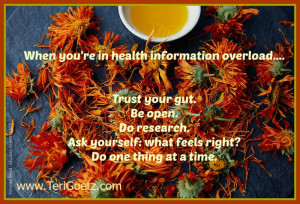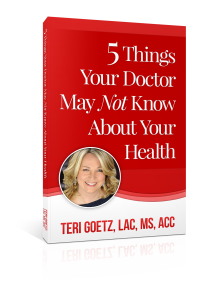 We’ve become slaves to time and feel obliged to account for every moment. Work, appointments, deadlines, accomplishments, goals—they are all timestamped. All of these things are important, of course, but the end result is that we have forgotten how to just BE.
We’ve become slaves to time and feel obliged to account for every moment. Work, appointments, deadlines, accomplishments, goals—they are all timestamped. All of these things are important, of course, but the end result is that we have forgotten how to just BE.
I have always worked really hard. Our culture reinforces that. “Hard work pays off” and “She’s such a hard worker!” are the catch-phrases of my youth. You think you’re going to get the gold star for that hard work—but do you? And at what cost do we reach for that ever elusive star? For example, why is making money without hard work a bad thing? What if you discovered the secret sauce to achieve this? Why is that somehow inferior to the American ethos that psychologically rewards those who get too little sleep and work 70 hour weeks? Why is it “cooler” to respond to the question “How are you?” with “I’m SO busy” than with “I’m feeling really great and healthy!”
Is working really hard all the time what we’re here for? I don’t think so. It goes back to Erma Bombeck’s timeless piece about using the good china every day because life is short. Are we working ourselves into the ground Monday through Friday to enjoy life only on the weekends (and then squeeze in a “few hours” of work)? Are we grinding ourselves into ill-health so we can have fun in retirement? Why do we take some sort of perverse pride in overworking and not being able to “shut down?”
Don’t let that be you! Commit to grabbing for the real-life gold stars today. Time outside, fun with your family, a great night’s sleep, an afternoon at the movies… whatever it might be.
While you’re at it, you can learn how to de-clutter your mind and take care of your body so you can give yourself (not earn) some much-needed rest. Here are some tips.
- Turn off the screens at least two hours before bed. That means computers, phones, tablets, TVs. And lordy lord— don’t use them in bed! The blue light from these devices tells your brain not to produce melatonin, the sleep-inducer.
- De-clutter your environment. Energetically, mess creates too much visual stimulation and your brain becomes just as cluttered.
- Turn off notifications. So-called “push notifications” keep you in multi-task mode. Our brain gets so scattered because we allow it to be constantly distracted with excessive stimuli. If I’m writing, and an email notification moves across my screen, I might notice a patient needing to reschedule an appointment. I am pulled to respond. Even if I don’t, my focus has still been pulled from what I’m doing. The brain simply takes longer to refocus and it takes more time to get less done and the distractions stress you out.
- Set aside blocks of time for certain tasks. For example, I’m reworking my schedule as follows (thanks to help from my sisters in my Savor circle):
- Teri Time. In the mornings, I do what I want. I can read, walk around my garden, exercise, or just stare at the sky.
- Work hours arranged according to my schedule, not at the convenience of everyone else. A recent epiphany helped me understand that as a professional I need to maximize my efficiency. Think about it. Does a doctor squeeze clinic patients in on a surgery day to convenience them? I do the best I can to work with my patients’ time-needs but I protect my time first. I have to, or I’ll run myself ragged… and then what good would I be to anyone?
- Blocks of time scheduled for: patient emails, writing herbal formulas, ordering supplies and supplements, research, accounting, and writing. I don’t jump from research to emails, or writing to accounting. When my email block is over, I will not see patient emails again until that time the next time I have blocked out for it, and that is okay. I’m getting a lot more done! I also have to schedule time for social media—to protect myself from the distractions there!
- Self-care. Whether it’s acupuncture, massage, walks, exercise, spending time with friends. If it’s not in the schedule, it’s too easy to let it slide. I treat self-care like an appointment with myself!
- Dictate your schedule, don’t let it dictate you. (See above points) Sit down early in the week and write out your upcoming schedule, including bedtimes! Bake in some wiggle room—time for missteps along the way so you aren’t so tightly scheduled that your head is reeling (and you’re not squeezing things in!).
- Relax your brain. Key to being not only productive, but calm. If you haven’t read it yet, look over to the right on this page and get yourself a free copy of my book “Don’t Just Do Something, Sit There” to read more about why this is crucial. (See, we teach what we need to learn!)
- Write it down. When you write everything down you will feel less stress. Get it out of your head and into a calendar, planner, or mental clutter journal. If you’re someone who gets in bed and can’t fall asleep because you have too much to think about, process, decide on, or you wake in the middle of the night with churning thoughts, then you are someone who needs these brain dumps!
Implement just one or two of these suggestions and see how you feel. Remember, you are in charge of your choices, your life, and how much clutter you allow in. It’s not an easy job to keep the clutter at bay—especially for people who are sensitive, empathic, smart, and curious—but you need to protect yourself in order to thrive.
 I’ve done it. Have you? A quick Google search about a symptom that has been bothering you or a recent diagnosis. Before you know it, the info is flooding your computer screen and you have more windows open than you can read in one day.
I’ve done it. Have you? A quick Google search about a symptom that has been bothering you or a recent diagnosis. Before you know it, the info is flooding your computer screen and you have more windows open than you can read in one day.
